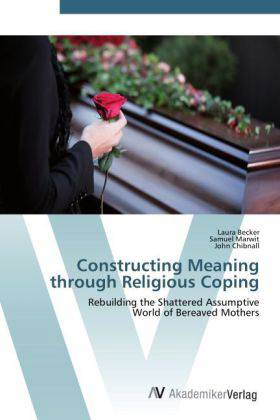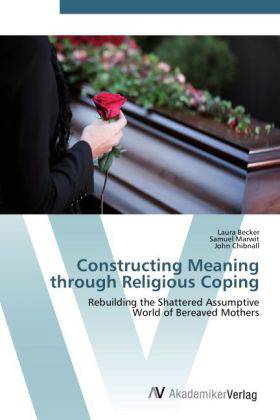
Bedankt voor het vertrouwen het afgelopen jaar! Om jou te bedanken bieden we GRATIS verzending (in België) aan op alles gedurende de hele maand januari.
- Afhalen na 1 uur in een winkel met voorraad
- In januari gratis thuislevering in België
- Ruim aanbod met 7 miljoen producten
Bedankt voor het vertrouwen het afgelopen jaar! Om jou te bedanken bieden we GRATIS verzending (in België) aan op alles gedurende de hele maand januari.
- Afhalen na 1 uur in een winkel met voorraad
- In januari gratis thuislevering in België
- Ruim aanbod met 7 miljoen producten
Zoeken
Constructing Meaning through Religious Coping
Rebuilding the Shattered Assumptive World of Bereaved Mothers
Laura Becker, Samuel Marwit, John Chibnall
Paperback | Engels
€ 60,95
+ 121 punten
Omschrijving
Revision with unchanged content. Researchers have begun to examine the theory that religion may help bereaved individuals provide meaning (or an explanation) to an otherwise inconceivable event. Recent work has spawned a growing understanding that bereavement forces individuals to restructure and rebuild previously held assumptions about the self and the world. This book examines the inter-relationship of religious coping, meaning reconstruction, and shattered assumptions by reviewing these three domains. Definitions surrounding "religious coping" and "meaning reconstruction" are clarified, and theoretical constructs are refined by exploring their relationships. This book presents a study which examined mediator-moderator effects of positive and negative religious coping on relationships between grief intensity and world assumptions in mothers bereaved by the death of a child (by homicide, illness, or accident). Results suggest that the negative associations of grief with world assumptions may be, in part, offset when grief is processed through positive religious coping and enhanced when grief is processed through negative religious coping. Suggestions for future research are discussed, including methodological and conceptual considerations. The need to find meaning in the universe is as real as the need for trust and love, for relations with other human beings. Margaret Mead, Twentieth Century Faith (1972)
Specificaties
Betrokkenen
- Auteur(s):
- Uitgeverij:
Inhoud
- Aantal bladzijden:
- 84
- Taal:
- Engels
Eigenschappen
- Productcode (EAN):
- 9783639453454
- Verschijningsdatum:
- 20/08/2012
- Uitvoering:
- Paperback
- Formaat:
- Trade paperback (VS)
- Afmetingen:
- 152 mm x 229 mm
- Gewicht:
- 136 g

Alleen bij Standaard Boekhandel
+ 121 punten op je klantenkaart van Standaard Boekhandel
Beoordelingen
We publiceren alleen reviews die voldoen aan de voorwaarden voor reviews. Bekijk onze voorwaarden voor reviews.









